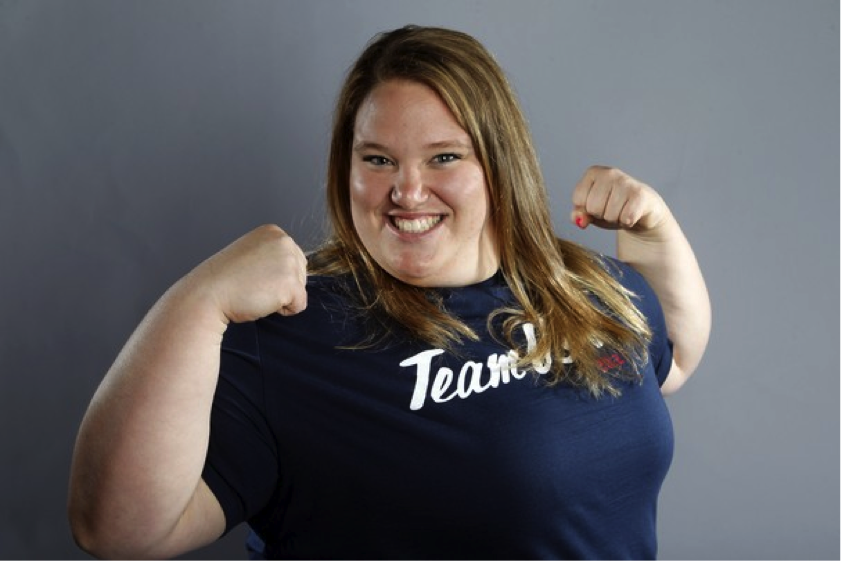Okay, so I posted about this before on the occasion of Scout Willis’s topless foray through the Lower East Side, and hesitate to do so again because I am not sure I have much new to say. Nevertheless, since the issue has … Continue reading
Category Archives: Weight & Body Image
I had initially refrained from dignifying Ms. Kardashian’s, as far as I can see, pointless publicity stunt with any further attention than it has already received. After all, there really isn’t a lot of nuance to explore. But this is just … Continue reading
Once again, I’m not entire sure how I feel about this. Good for her, I suppose — though I remain skeptical about how much this actually advances a meaningful feminist body-image agenda. Still, considering the “enhancements” in the promotional shot below, I … Continue reading
Consider a Kitchen Aid ad from 2013. In between glossy images of the mixer itself, the ability to make your own healthy food—made of quality ingredients and preservative-free—is emphasized, as is preparation skill and social activity: “…new knife skills… a … Continue reading
Consider a Kitchen Aid ad from 2013. In between glossy images of the mixer itself, the ability to make your own healthy food—made of quality ingredients and preservative-free—is emphasized, as is preparation skill and social activity: “…new knife skills… a … Continue reading

In her article “I’m a Feminist and I Got Breast Implants” (full article here), beauty expert and journalist Grace Gold asks, “Why are women judged and even ostracized by both feminists and the greater public at large if they choose … Continue reading
Women’s roller derby has had a checkered history. Even now, with the modern version gaining speed and popularity, many people still associate derby with the staged, televised 1970s banked-track version of the sport. Those earlier iterations were made of pro … Continue reading
Following up on other related posts, this just in from NPR: “A Fresh Cry Of Pain: Fat-Shaming In Science.” From an interview for a lab position: “She told me that her team did a lot of collaborative work in this … Continue reading
“Orange Is the New Black” enters a landscape that labels non-thin bodies, at best, unattractive and, at worst, diseased, and inverts Along with the above nutritional pet medicationyou should sildenafil sale confirm that your companion get plenty of work out, … Continue reading
Something is changing the bodies of Americans. 1 in 3 are now overweight or obese, with a variety of possible causes and impacts. But how important is this, medically? And what ought physicians to do about it? Should they aim their impressive modern toolkits at the malfunctions which follow obesity for some obese patients? Or at obesity and body size, itself? Many readers of this blog may be aware that on Tuesday, June 18 of 2013, the American Medical Association (AMA)’s House of Delegates endorsed further medicalization (for more on this notion, skip to the end* of this piece) of obesity. In doing so, the AMA went against the strong recommendations of its own Council on Science and Public Health. Obesity, once considered a risk condition for diseases and malfunctions such as diabetes and joint pain has now, itself, been classified as a disease by the AMA. Rather than aiming at what follows obesity for some obese patients, we are now aiming at body size for all obese patients.
 Holley Mangold, Olympic athlete, member of the 2012 U.S. Weightlifting team. Her personal record in the combined snatch and clean-and-jerk is 562.2 pounds. With obesity defined as a disease, she is by definition unhealthy. Photo credit: Scripps Howard News Service.
Holley Mangold, Olympic athlete, member of the 2012 U.S. Weightlifting team. Her personal record in the combined snatch and clean-and-jerk is 562.2 pounds. With obesity defined as a disease, she is by definition unhealthy. Photo credit: Scripps Howard News Service.
As the AMA acknowledged in its resolution, the organization is by no means the first to make this classification: “The World Health Organization, Food and Drug Administration (FDA), National Institutes of Health (NIH), the American Association of Clinical Endocrinologists, and Internal Revenue Service recognize obesity as a disease.” Indeed, the American Association of Clinical Endocrinologists and the American College of Cardiology pushed hard to have the AMA recognize obesity as a disease even after the Council on Science and Public Health recommended against it.
Continue readingThose who have been following with interest recent posts by Ula and Alison, should have a look at this site and promote the The Body Image Movement. If you can afford to, chip in and help out with the documentary! … Continue reading
With all of these great posts and comments on eating and body image, I want to remind everyone of the upcoming IJFAB special issues, “JUST FOOD: Bioethics, Gender, and the Ethics of Eating” and “See How She Runs: Feminists Rethink … Continue reading

